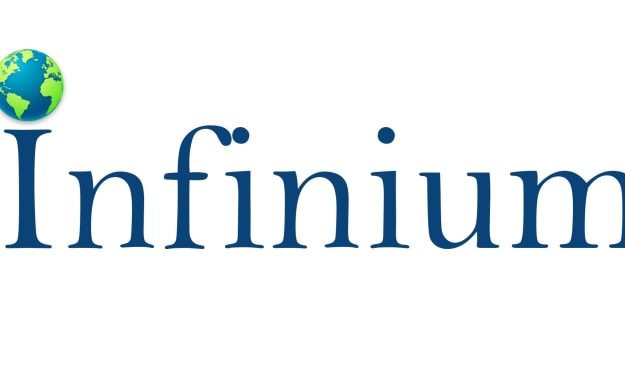Why Legacy Application Modernization is Crucial For Digital Transformation
Benefits of modernizing legacy applications for digital transformation

A legacy application can be defined as software or an application that no longer receives updates and is not being actively maintained. These outdated systems can continue to work and function, and many businesses often depend on them for their everyday operations.
However, these outdated applications and software systems can be challenging to use since there is a lack of support, updates, and active maintenance. Some of the common reasons for these systems to reach legacy status are their outdated technology and reliance on old hardware systems. Legacy software usually needs developers with special skills to maintain it. While many businesses continue to run such legacy systems, it's essential to modernize them to ensure they are functional and secure.
This article will explore the reasons for modernizing legacy applications to achieve digital transformation.
Reasons For Modernizing Legacy Applications
- Flexibility: Flexibility can be one of the main reasons for modernizing legacy applications. These outdated software systems are not flexible or agile enough to keep up with the changing business requirements and technological advances. By modernizing legacy applications, businesses can offer better integration, scale as per current business needs, and gain the ability to use more agile development practices. At the same time, upgrades to the technology stack help ensure that the applications are compatible and secure.
- Increase In Productivity: Enhanced productivity can be one compelling reason for modernizing legacy systems. Outdated software may not be efficient enough to function properly under new technologies, which can lead to the creation of data silos and manual workarounds that are time-consuming. Upgrading these legacy systems allows companies to streamline their workflows, optimally allocate resources and automate repetitive tasks. Modernizing legacy applications also ensures faster data processing, collaboration, and integration with other software and tools. The result is that employees are more productive, manual errors are reduced or even eliminated, and the focus shifts to more value-added work activities.
- Expanding Revenue Streams: Expanding revenue streams is another reason to modernize legacy applications. Outdated applications can be restrictive and hamper a company’s ability to use new business models, expand to newer markets, or even adjust to the changing customer requirements. Modernizing these legacy applications can allow companies to make the most of the cloud-based solutions and data analytics. These changes can help organizations target newer markets and increase customer engagement with their applications. The end result is diversification of their revenue sources, and increase in profitability.
- Enhanced Customer Experience: Outdated applications usually have user-friendly interfaces, which can lead to frustration among users. Modernizing these legacy applications allows companies to offer more intuitive designs and responsive user interfaces that lead to more personalized customer interactions. Modernization also leads to faster performance, mobile compatibility, and better security, enhancing customer experience. Modern applications also give customers a more efficient and seamless user experience that increases loyalty to the brand.
- Adopt New Technologies: Adopting or embracing new technologies is one of the key reasons for modernizing legacy applications. Outdated applications often cannot keep pace with newer technologies and IT architecture, which can reduce business efficiency, and hinder workflows and scalability. By modernizing applications, organizations can engage with the new generation of technology, enhance customer service, and improve user experiences. Modernizing allows companies to stay competitive and agile in the current business scenario.
- Extend Application Lifespan: Extending application lifespan is crucial for all businesses. Instead of removing the existing applications and software systems, companies can increase their compatibility, functionality and security. Modernizing applications can increase the functional life of applications and offer a better return on the business investment. By doing this, companies can avoid disrupting the business with costly replacements to ensure that there is continued support for business processes. Modernized applications can also easily integrate with new technologies, allowing organizations to adapt and progress without sacrificing reliability and stability.
- Ensures Compliance: Outdated applications and software systems may not be compliant with the current industry standards, legal requirements and security protocols. By modernizing the applications, organizations can address the vulnerabilities and implement strong data protection measures and meet the required regulations and guidelines. Applications that have been upgraded or modernized offer better data privacy and minimize legal risks, helping customers and other stakeholders maintain their trust in the application.
- Improved Security: Running outdated applications that often lack strong security features makes these applications vulnerable to hacks and cyber threats. Upgrading applications helps organizations implement better and stronger authentication methods, encryption methods and overall application monitoring. Modernizing applications can ensure that they are in sync with the current security measures that can safeguard data and reduce the risk of cyber attacks.
Final Words
Modernizing legacy applications is essential for a successful digital transformation. By leveraging legacy app modernization services, organizations can ensure that their applications offer enhanced performance, security and user experience to their customers. Upgrading legacy systems helps ensure that the applications comply with current regulations, adopt new technologies, and extend the application lifespan. Modernizing legacy apps allows businesses to become competitive and respond faster to changing business landscape.
About the Creator
Ryan Williamson
A professional & security-oriented programmer having more than 6 years of experience in designing, implementing, testing & supporting mobile apps developed. Being techno geek, I love to read & share about the latest updates in technology.
Enjoyed the story? Support the Creator.
Subscribe for free to receive all their stories in your feed. You could also pledge your support or give them a one-off tip, letting them know you appreciate their work.






Comments
There are no comments for this story
Be the first to respond and start the conversation.